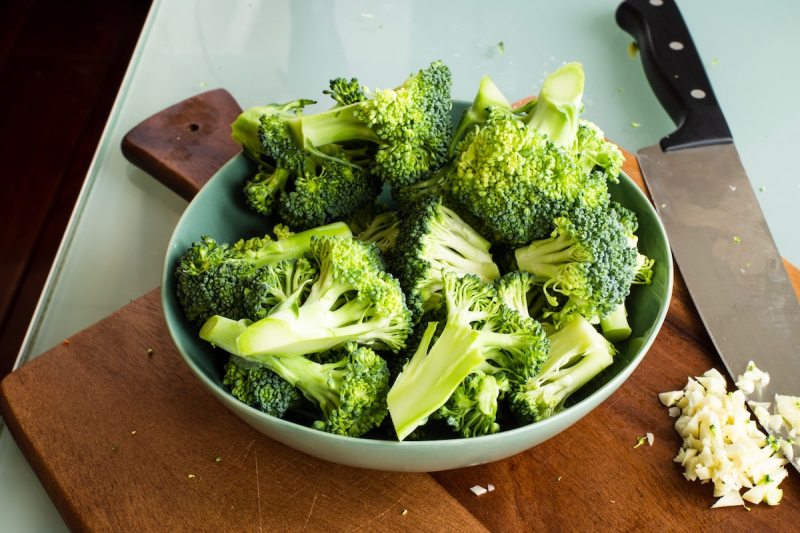Vegetables are an essential part of anyone’s diet, as they are rich in nutrients, but do they contain protein? As a nutritionist, my clients are always asking me what veggies they should prioritize when they want to lose weight but still maintain their muscle mass. While vegetables aren’t the usual go-to for protein, some of them do contain a considerable amount.
If you’re looking to optimize your diet, keep reading to discover the 10 best vegetables that have high protein content and other plant-based options.
What are the benefits of protein?

Betters muscle growth and repair
If you want to put on muscle, protein is one of the most essential nutrients for your muscles, as it directly fuels them. Consuming enough protein after workouts also helps repair tissue and further supports muscle growth, leading to improved strength and endurance over time. If you are also interested in leaning out, an NIH study shared that “protein under-consumption increases appetite drive in an effort to ensure sufficient amino acid intake,” which supports a high protein intake as well.
Boosts immune function
Protein is imperative for producing antibodies that fight off infections and diseases. A strong immune system relies on adequate protein intake to function effectively.
Supports healthy skin, hair, and nails
Collagen, a protein in the body, is vital for healthy skin, hair, and nails. The macronutrient also helps repair skin cells, promotes elasticity, and can reduce signs of aging for some people.
How much protein do you need a day?

The amount of protein a man needs per day depends on factors like age, weight, activity level, and goals. The Recommended Dietary Allowance (RDA) is 0.8 grams per kilogram (0.36 grams per pound) of body weight. If an average sedentary man who weighs 180 pounds consumed 65 grams of protein daily, he would meet this minimum standard.
However, it is important to keep in mind that you would benefit from eating much more protein, as a high-protein diet has many perks. This is especially true for active men who lift weights or play sports; this group should be aiming for more like 1.8 to 2.2 grams per kilogram (0.82 to 1 gram per pound). This means a 180-pound athlete might require 148 to 180 grams daily. You can see the difference there, compared to what a man simply adhering to the RDA would eat.
Do vegetables have protein?

Yes, vegetables contain protein, although they are primary carbohydrates. While they may not be primary protein sources like many animal sources, they still contribute to your overall daily intake, especially if you follow a plant-based diet.
Many leafy greens, cruciferous vegetables, and legumes offer a surprising amount of protein per serving, so eating a variety of these vegetables can help you meet your protein goals. Veggies typically don’t provide as much protein as foods like tofu or tempeh, but they still play a valuable role in a balanced diet, especially when it comes to vitamins.
10 vegetables that have high protein content

- Edamame – One cup of cooked edamame provides about 18 grams of protein. It’s a great snack option, especially when tossed with a little sea salt or mixed into salads and stir-fries.
- Spinach – One cup of cooked spinach contains approximately 5 grams of protein. It’s also packed with iron and antioxidants, making it a nutrient-dense addition to any meal.
- Kale – One cup of cooked kale offers around 4 grams of protein. It’s known for its high levels of vitamins A, C, and K, making it an excellent health-boosting vegetable.
- Broccoli – One cup of cooked broccoli provides about 4 grams of protein. Additionally, it is rich in fiber, which helps with digestion and overall gut health.
- Brussels sprouts – One cup of cooked Brussels sprouts has around 4 grams of protein. These mini cabbages are also high in vitamin C and can be roasted or sauteed for great flavor.
- Artichokes – One medium artichoke contains about 4 grams of protein. They also contain prebiotics that promote gut health and digestion.
- Peas – One cup of cooked peas offers about 9 grams of protein. They’re a versatile ingredient, perfect for soups or stews or blended into a creamy dip.
- Mushrooms – One cup of cooked mushrooms provides around 3 grams of protein. In addition to protein, they offer a meaty texture that makes them a popular meat alternative.
- Asparagus – One cup of cooked asparagus contains about 4 grams of protein. It is also rich in folate, which supports heart health and cellular function.
- Sweet corn – One cup of cooked sweet corn has about 5 grams of protein. Its natural sweetness makes it a great addition to salads or casseroles or grilled as a side dish.
What other plant-based foods are high in protein?

Aside from vegetables, several plant-based foods can help contribute to your daily protein intake. Legumes like lentils, chickpeas, and black beans are excellent sources, providing 15 to 18 grams of protein per cooked cup. Tofu, tempeh, and edamame are also rich in protein, offering around 15 to 20 grams per serving.
Quinoa, buckwheat, and farro are whole-grain options that are perfect for a healthy dinner and provide about 6 to 9 grams per cup when cooked. Nuts and seeds, including almonds, chia seeds, and hemp seeds, are nutrient-dense options with about 6 to 10 grams of protein per ounce. One thing to note about nuts is that many people don’t keep portion control in mind, so while they are healthy, they are also high in calories and should be consumed in moderation.
Frequently asked questions

How do you get 40 grams of protein without meat?
You can get 40 grams of protein without meat by combining plant-based sources. For example, eat 1 cup of lentils (18 grams), 1 cup of quinoa (8 grams), and 1/2 cup of tofu (10 grams). If you want to hit that number more easily, you can have about two scoops of a plant-based protein powder.
Which vegetable is the king of protein?
Edamame would likely be considered the king of protein among vegetables. One cup provides about 18 grams of protein, making it a fantastic plant-based source. It’s also rich in fiber, vitamins, and essential amino acids. Edamame is versatile, working well in stir-fries or salads or even as a simple high-protein snack.
Are potatoes high in protein?
Potatoes are not high in protein but still provide a decent amount. One medium potato has about 4 grams of protein. While not a primary protein source, potatoes offer essential nutrients like fiber, potassium, and vitamin C. Pairing them with beans, dairy, or tofu can boost your protein intake.




